Electric Wonderland is a 7-day international maker/hacker camp in Croatia combining art, technology, culture and science with DIY (do-it-youself), DIWO (do-it-with-others), DITO (do-it-together) cultures.
International and domestic guests are invited to teach, collaborate or do a residence during the camp, BUT the participants of the camp can also take their part in leading workshops, facilitating OFF the Grid Labs, guiding a hiking or field trips, or do what they think might be interesting to the camp participants. Lectures, presentations and public small talks around the campfire are also an important part of the program, as well as mini ambient sound performances, installations and spontaneous jamming. We also do night skywatching.
PEOPLE + STEAM + NATURE = ELECTRIC WONDERLAND
Applications
closed
7th hacker/maker camp & a-i-r
´weird and wonderful electronics´

22nd-28th
july 2025
baške oštarije / kamp velebit


























! Continuously updating !
Etching Lab
Aleksandar Vojnić & Goran Mahovlić
Etching is a printmaking process where a design is created on a metal plate by using acid to cut into the metal's surface. We’ll be preparing all the beautiful chemistry for the process of etching your desired circuit board during the camp.
Meme Lab
Deborah Hustic & Monika Pocrnjić
Everyday we gather at some time together (30 minutes max) and play around the funny moments during the camp: hilarious moments, funny images, lucid sentences you have heard by campers while passing-by and similar. What we gather, we are trying to make a meme around it. We will also have few games if we get stuck in the process of creating a meme.
Photo and Video Lab
Branko Vilus
Gathering photo and video documentation of each day in one place, selecting video and photos to be deleted, preparing material to be published in some form - photo posts for social media or video editing. Creating a repository of photos and video materials per day.
Hobbits & Lasers
Goran Mahovlić
Preparing and cutting tasks on a portable laser cutter during the camp. Mini crash courses about how to use the laser cutter.
Hobbits & Cutters
Damir Prizmić
Preparing and cutting tasks on vinyl cutter during the camp. Mini crash courses about vector graphics and how to prepare and cut stickers or artworks for DIY silkscreen printing.
Hobbits & 3D printers
Radiona peers
Preparing and cutting tasks on 3d printer during the camp. Mini crash courses about 3d modelling and preparing models for printing.
Inner Textures
Zoe Romano
Starting from an introduction to the research at the basis of her latest textile project and custom PCB titled “Inner Textures”, Zoe will bring and share the knowledge of using a back-strap loom through a session in the forest. Participants are invited to use plant/animal based yarn and also conductive fibers to create a woven piece. Together we’ll then explore the possibility to generate sound interacting with the textile connected to a mobile phone with a synth app installed. No computer involved. "Inner Textures" employs a sound generation within its woven pieces to symbolically and literally communicate the act of questioning and transgressing borders—specifically, the boundaries between magic and science urging viewers to contemplate and navigate these overlapping realms.
Rational numbers
Ingo Randolf
We will investigate rational numbers and do some hand calculations to find the repeating part of the fraction.
RabbitControl
Ingo Randolf & Joreg Djerzinski
RabbitControl is a protocol for remote control. A short presentation will give an overview about the protocol, its intention, structure and state of development.
vvvv
Joreg Djerzinski
Everything about vvvv, the visual programming environment and a general-purpose digital toolkit with a special focus on real-time video synthesis and programming of large media environments with physical interfaces, real-time motion graphics, audio and video.
Indigo - Circular BLUE
Mika Satomi & Hannah Perner WIlson
Mika Satomi & Hannah Perner WIlson The Circular BLUE project proposes to grow and dye textiles with Persicaria Tinctoria (Färber Knöterich/ Tade-Ai) in an urban community garden, Elisabeet in Soldiner Kiez, Berlin. The project experiments with a fermentation indigo vat: a dye-bath that uses bacteria to dye fabric with Indigo and a Sukumo color extraction: hot composting Persicaria leaves to get colors from the plants. The project is about implementing a sustainable and circular textile dye practice in an urban environment together with neighbors.
Bird Song Catchers
Jena Jang
A group walk to try and identify some of the bird species in the area. We can explore where they live and how they sound and communicate.
Swamp Jam 2
Melma
Zoe, Giacomo and Alex invite you to a session of explorative micro-biogeography, an interdisciplinary practice to weave connections with the incessant activity of a multitude of non-human entities, able to transform an artistic itinerary into an immersive experience in subvisibilia, for an unusual revelation of the living.
May-Day Textile Bracelet
Lavoslava Benčić
May-Day is a textile bracelet, a simple and attractive fashion accessory. The LEDs in the fluorescent tube mounted on a base made of natural materials light up. Participants learn the basics of soft electronics. The goal of the E-textile workshop is for each participant to make their own bracelet. Prior knowledge and skills are not required.
Lockpicking 101
Igor Brkić
Learn the basic principles of opening locks without the key. It’s a daily walk-in workshop where on the first day some basic theory will be presented and on the following days the tools will be available for trying out and practice.
Yoyo for beginners
Igor Brkić
Learn how to throw a yoyo and do some tricks with it, from the most basic to more advanced ones. It’s a daily walk-in activity
Food Hack: Burek making for beginners
Aleksandar Vojnić
Learn how to make traditional burek in this fun, hands-on workshop held in three parts: preparing the dough from scratch, stretching and baking it, and finally enjoying your tasty creations together.
Hacking the servo motor
Aleksandar Vojnić
Explore how to get advanced features out of a cheap, simple servo motor. In this scheduled workshop, you’ll learn about how servos work, hack one to unlock new possibilities, and build a simple practical project using those hacked features. Beginners will be guided step by step, while advanced participants can dive deeper and apply more complex hacks.
Kites for beginners, by beginners
Zvonimir Domazet & Ana Novosel
Intrigued by our previous kite flying failures, we will build and operate smaller, DIY kites, made from common household materials.
LetsPrintOurselves!
Radiona peers
Screen Printing technique is popular because it represents the do-it-yourself philosophy of printing. It is used for printing posters, clothing and various materials in the non-commercial industry or underground scene. Participants will go through all the stages necessary to get the finished product: technical preparation - preparation of printing equipment; sieve preparation, creative preparation - selection and production of motifs for printing, paints and emulsions, printing - selection of materials (textiles, T-shirts, bags) and the whole printing process with inks and emulsions up to the screen cleaning stage.
Ultimate Food Hacking
Ana Stuparić & Mitja Greifoner
On the 7-day workshop entitled ‘Ultimate Food Hacking – On the Frontiers of Citizen Food Science’ participants will learn how to hack natural food and flavours making only the best recipes. The workshop leaders will guide its participants through the processes of natural preparation of the food (meat, vegetarian, vegan, gluten free) with an aim of preparing a lunch and dinner for the camp participants. Each day will have its covered topics and colours to be served on the table. The aim of the workshop is to present diverse ways of food hacking, flavour mixing, the use of spices from nature and to teach you to cook if this is your first time.
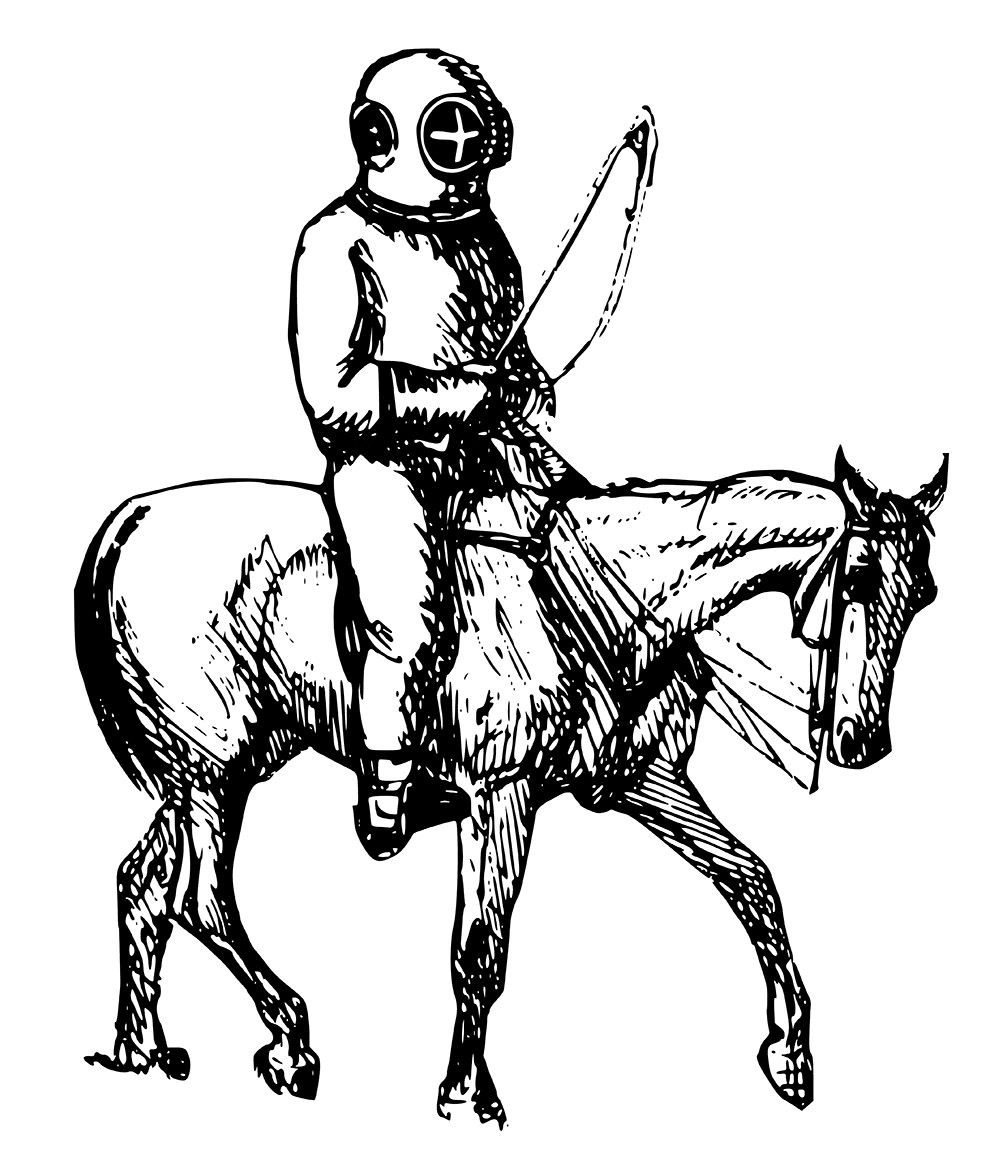
A hacktonaut is a person interested in matters of make shifting and reverse engineering, using high and low technology. Hence, hacktonautics is the art of navigating and tinkering through DIY, DIWO, and DITO approaches to the cultures of making and hacking (non-)electronic devices and objects, as well as creating them. It also includes citizen science and innovation through smart and meaningful improvisation techniques.
Artist-in-Residence
Mika Satomi (JP/DE)
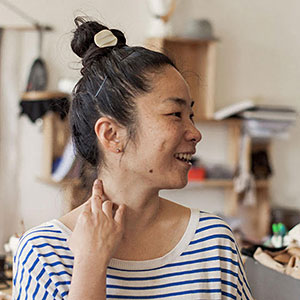
[she/her] An artist, a designer and an educator working in the field of e-Textiles, Interaction Design and Physical Computing. Her work explores how we relate with technology and what we really want in them. She often collaborates with musicians and performers creating technology embedded costumes and interactive systems.
Since 2006 Mika has collaborated with Hannah Perner-Wilson, forming the art collective duo KOBAKANT creating artistic projects in the field of e-Textiles and Wearable Technology Art. She is a co-author of the e-Textile online database How To Get What You Want. Currently she lives and works in Berlin, Germany.
Hannah Perner Wilson (AT/DE)
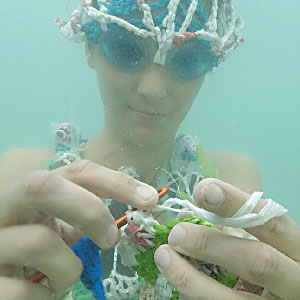
[she/her] I love to explore how the world is made up through making things myself. For a long time I was fascinated by the electrical properties of materials that make up our everyday life and how technology could be made differently from soft materials. More recently I'm exploring how the soft, textile, wearable interfaces I'm able to design and build can be used as props for games and storytelling - bring groups of people together to share an experience in time and space.
Jeffrey Roe (IE)
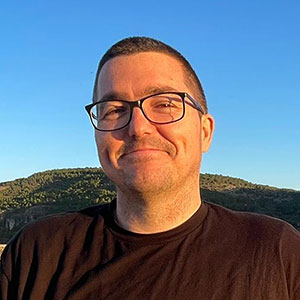
[he/him] A software/hardware engineer, maker, innovator and electrical engineer. He is one of the founders of the first Irish hackerspace TOG. TOG is a group led and supported by a community of makers and innovators in a shared space where members can work on their projects in a creative environment that is inspiring and supportive of old and new technologies. He also works with grassroots communities with whom he is launching a project known as Dublin Maker – a one-day event to showcase the work of Irish makers. Workshop leader at many international festivals, conferences and fairs.
Ingo Randolf (AT/DE)
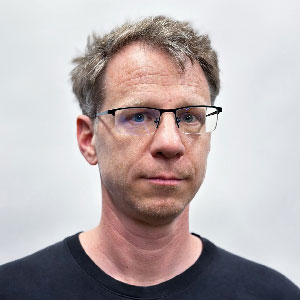
[he/him] Ingo studied “audiovisual media design” at the University of Arts in Linz/Austria. He expresses himself in media art, sound art, animation, video production, digital media, programming, live-coding and physical computing. For the last twelve years he has lived in Berlin working in the areas of computing, interactive installations and open source apps. He likes to experiment with spatial elements turning them into sources of sound through automated processes inspired by the principle of a record-player turned inside-out.
Joreg Djerzinski (AT/DE)
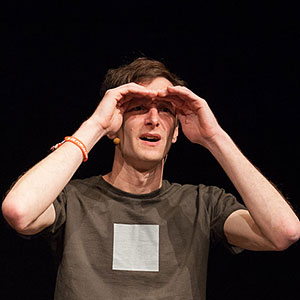
[he/him] Joreg is co-founder of vvvv.org and visualprogramming.net and core-developer of vvvv where he is mostly concerned with UI, UX and library development. Besides he teaches, works for money and is otherwise concerned with the integration of sound, image and computer code.
Jena Jang (KOR/CZ)
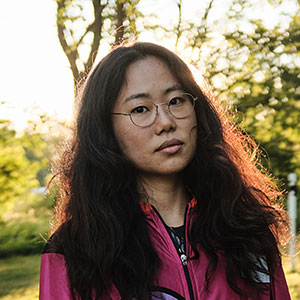
[they/them] Jena Jang is a South Korean audiovisual artist based in Prague, Czechia. Their practice centres on trauma healing through live performance, focusing on the circulation of energy between artist and audience, building connections with non-human beings, and musically interpreting organic structures found in nature. Their interests extend into the realms of urban noise, bio-art, bird song studies, and somatic voice experiments.
Zoe Romano (IT)
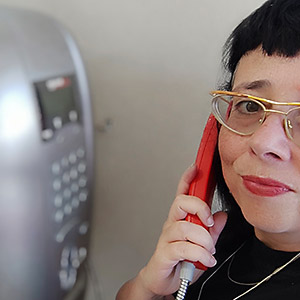
[she/her] holds a MA in Philosophy and Media Science and Technology. She's a craftivist, lecturer and consultant working on EU-funded projects mixing social ecologies, digital fabrication technologies and smart textiles. She developed her skills in hackerspaces and makerspaces in Milan and, while working for Arduino, she co-founded a fablab called WeMake, focused on fashion and design. She's been activating various artistic projects like Obot (Our bodies our Tech) in 2020, Melma Crew in 2022, and lately loves to dedicate time in artistic residencies and camps in Italy and abroad.
Alex Piacentini (IT)
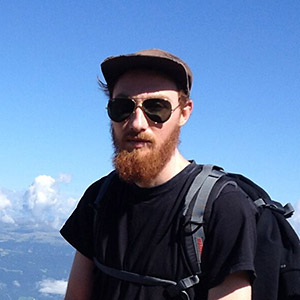
[he/him] Milan based artist, designer and creative developer working with graphics, sound and code. He uses the web and other digital media as multidimensional materials where space, time, data and interactivity fuse to create generative design, dataviz and interfaces and occasionally installations, visuals and sound. BA in communication design from Politecnico Milan and Master of European Design (KISD, ENSCI Les Ateliers). Loves misusing technologies and exploring unexpected outcomes.
Giacomo Silva (IT)
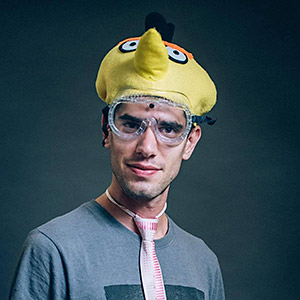
[he/him] 1988, Italy. Lives and works in Milan. Lecturer in the Independent Publishing course at IED Milan, freelancer in the field of visual communication and editorial design, his personal recent research focuses on the temporal layering of landscape. A landscape-mind, vast and tiny, sincere interlocutor, ironic and ruthless.A landscape-body, striped by the past, on which the present flows and through whose veils the future shimmers. A landscape-territory, suffering the advance of deterritorialized tribes. A landscape-infinity, rewriting the predetermined.
Lavoslava Benčić (SI)
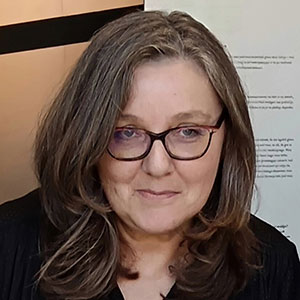
[she/her] Lavoslava Benčić is an interdisciplinary artist, pedagogue and curator. By education, she is an engineer and manager of media production and a master's degree in media arts and practices. Conceptualizes and implements media projects (video, graphics, photography, DIY electronics, machine learning, graphic sound...). She teaches media production at the Institute and Academy for Multimedia in Ljubljana and Integrated Practice in Art and Electronics at the Academy of Arts in Nova Gorica. Prominent mentor at workshops and seminars of hybrid and research artistic practices. Creates and leads new media workshops for adults and children (DIY electronics, electronic textiles, graphic sound, machine learning, etc.)
Monika Pocrnjić (SI)
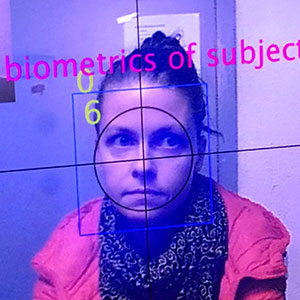
[she/her] Intermedia artist. She works in the fields of do-it-yourself (DIY) electronics, drawing and puppet theatre. In her work, she focuses on concepts such as object as interface, robotic theater and the role of technologies in the modern world. In her works of art, she uses and combines various methods, media and techniques, including 3D technologies, hacking and creative coding. She displays these objects in performative events or theater performances.
Ana Horvat (HR)

[she/her] Composer and teacher of electronic composition. Ana Horvat writes acoustic and electro-acoustic compositions, music for installations, film and performances, and is coauthor of several art installations. She is particularly interested in bringing together different areas of art and has been regularly collaborating with other artists and developers.
Paula Bučar (HR)

[she/her] Art education graduate at the Academy of Fine Arts in Zagreb. She organizes exhibitions and art workshops, but mostly her expression is on the area of installations, theatre set and light design. Paula has had several solo exhibitions and many group exhibitions. She experiments with different materials and media covering traditional arts techniques.
Deborah Hustić (HR)

[she/her] Media artist, curator and leader of Radiona. Deborah is into hybrid arts, sound art and educational development supporting the STEAM concept. Regularly runs workshops on creative electronics, eTextile and design thinking for children, youth and adults. She has performed, lectured and exhibited in Croatia and abroad.
Igor Brkić (HR)
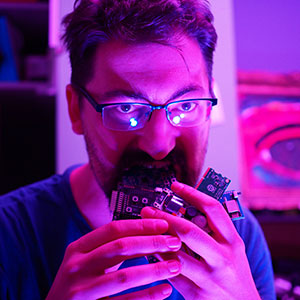
[he/him] Electrical engineer and maker who has specialised in the area of digital processing of audio signals. He has created many robotic and electronic solutions for museums, exhibitions, theatre productions in Croatia and abroad as well as for television broadcasts. Has been leading numerous workshops over the past 9 years.
Damir Prizmić (HR)

[he/him] Freelance designer working in a wide area of disciplines. From visual communication design, exhibition design, interaction and new-media installations and concepts to the product design and educational tools. He is active in the field of education and promotion of open-source culture, and regularly exhibits and leads workshops in Croatia and abroad.
Goran Mahovlić (HR)
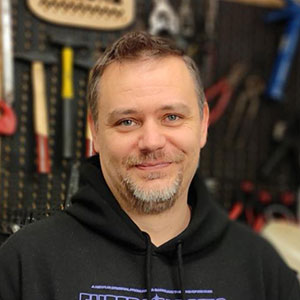
[he/him] Maker and hacker working in the areas of smart city technology LoRaWan and FPGA. In his work he promotes accessible and open internet and is the founder of Radiona’s SmartZG network. Goran has led a number of accomplished workshop in Croatia and abroad, and he exhibits his work within Radiona’s program.
Sandra Maglov (HR)
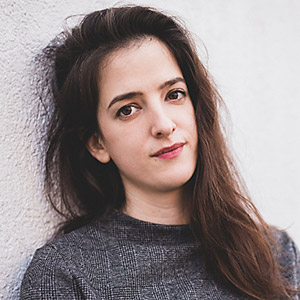
[she/her] holds MA in Product Design. In 2020, she launched the DKO project - Design Through Craft, an experimental project for development, design and manufacturing of small functional products using today's widely available devices such as desktop FDM 3D printers, CNC devices and lasers - all in a limited home environment. She independently exhibited her work at many design events in Croatia and abroad.
Tomislav Zidar (HR)

[he/him] Jewelry and installation designer, visual artist for more than twenty years. He exhibited his works at a number of art festivals and fairs and in galleries in Croatia and abroad. He likes to shut himself up with a cup of tea in his studio and create robotic creatures from discarded technology that then continue their lives in the hands of many satisfied lucky people.
Zvonimir Domazet (HR)
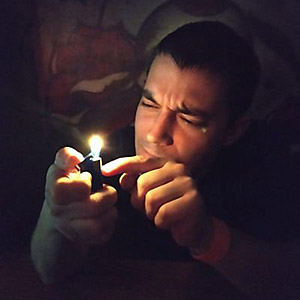
[he/him] A physicist with a huge passion for disassembling everything he can get his hands on, especially audio devices, such as synthesizers, guitar effects, etc. Since his student days, he has been working as a sound engineer and he switched to different types of devices, from power plants all over the planet to calculators or mixers, which he fixes/hacks. He has a black belt in lock-picking and is often technical support for guitar pedal workshops. He turned the kitchen table into a laboratory and is constantly covered with disassembled electronic devices, which is why he often has breakfast in his living room.
Aleksandar Vojnić (HR)
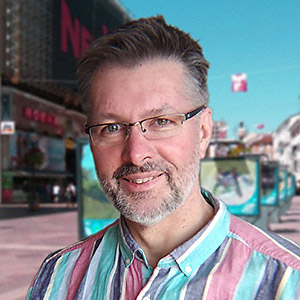
[he/him] A programmer and developer who likes to build stuff, hack machines and design unusual devices. Very passionate about DIY and explaining complicated tech stuff through simple gaming solutions. His favorite place is the workshop area where he can freely saw a wooden board from which he will make the next gaming console. He has the ability to concentrate on his work fully, even if walls were collapsing around him and cataclysms were happening.
Fran Masnjak (HR)
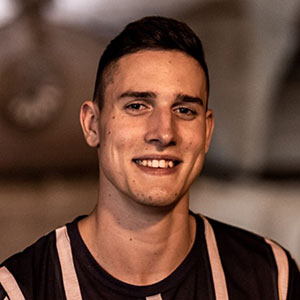
[he/him] Since childhood, he has had a strong desire for sports and activity, as well as a huge curiosity for everything technical or mechanical. Fran is passionate about electronics and enjoys building from scratch or hacking mobility devices and gadgets such as e-bikes, longboards, e-skateboards, e-romobiles, e-unicycles, e-foils, etc. He graduated from the Faculty of Kinesiology. Works as a coach for amateurs, athletes and people with special needs.
Branko Vilus (HR)
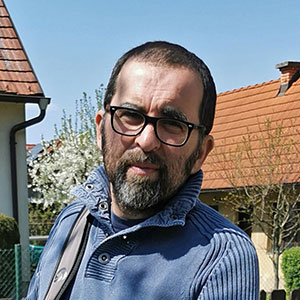
[he/him] Since 2002, Branko has been working as a freelance professional in video production, including filming, directing, and editing. He graduated from the School of Applied Arts and Design, as well as the Teachers' Academy, where he studied preschool education. In addition to his production work, he works as a lecturer and mentor in educational programs focused on video recording. He is also a long-time environmental activist.
Luka Žuženić (HR)
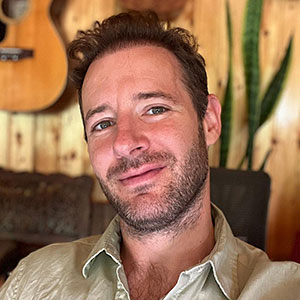
[he/him] Luka runs Kamp Velebit since 2018. - a family owned campsite where EW takes place. He lives on the top of the mountain and doesn't come down too often. He holds a mr.sc. degree in public policy and management, plays instruments, sings and shoots travel and nature videos.
Ana Stuparić (HR)
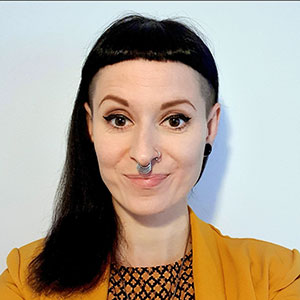
[she/her] Culinary expert and a professional chef, profiled in vegan and vegetarian cuisine, and cuisine for people with special dietary needs. She specializes in creating menus and recipes, as well as running a kitchen and organizing culinary workshops. She has numerous collaborations with organizations that promote personal development, holistic living and yoga. Ana is the president of the Avocado Association for the Promotion of Plant Nutrition and Environmental Awareness.
Camp Guardians
Onda
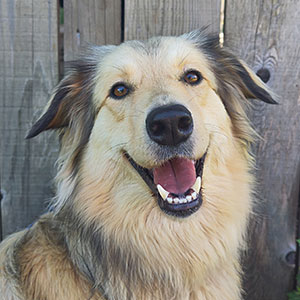
2021, born and raised in Milan, currently pushing for moving to the countryside. Independent shepherd specialised in frisbee catch, bones crunching and cat-rushes. During EW 2024 She defended the camp participants from Morana, the local cat of Velebit Kamp. Randomly barking she got a degree in slow motion poses and human shepherding.
Morana
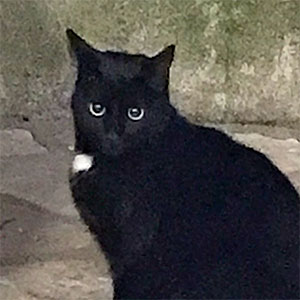
You don’t see her during the day, because she is the master of the night. Morana rules the Camp Velebit - she knows everything, she guides all the night shadows in the Crobbiton village, and there is no action made without her approval. Morana - the furry goddess of the camp, the mountain spirit talker, the local electric current guardian.
Ori

A badger named Ori, mascot and spirit animal of the Radiona organization.
Kamp Velebit
Baške Oštarije, Croatia
Personal Transport
Public Transportation
No transporation

Participation
The participants are kindly asked to join the camp on 22 July and partake all seven days of the camp. Drop-ins will not be allowed. Spoken languages will be Croatian and English.

Accomodation
Accommodation is provided in wooden Hobbit houses for 4, 5, 7 up to 11 beds. The participants can also bring their own tents. Facilities include in-house toilets, in-house and outside showers, in-house kitchen and outside kitchen.

Cuisine
Breakfast, lunch and dinner will be provided by the camp staff. Please contact us in advance if there is a need for a specific type of diet.

Apparel
We advise the participants to bring warm clothes because the nights can be rather cold during nights in this part of Croatia in July. Hiking boots and clothes are also recommended.

Insurance
Please take note that the insurance is not covered by the camp. The participants should bring their own health insurance cards or travel insurance. The participants from the EU are advised to bring their European Health Insurance Card.

Sustainability
This is an eco-friendly camp. The goals will be to reduce waste as much as possible, use water and energy responsibly and buy groceries from local farms. The surrounding nature will be the perfect motivation for all of us.
Organised by
Domestic Partners
International partners
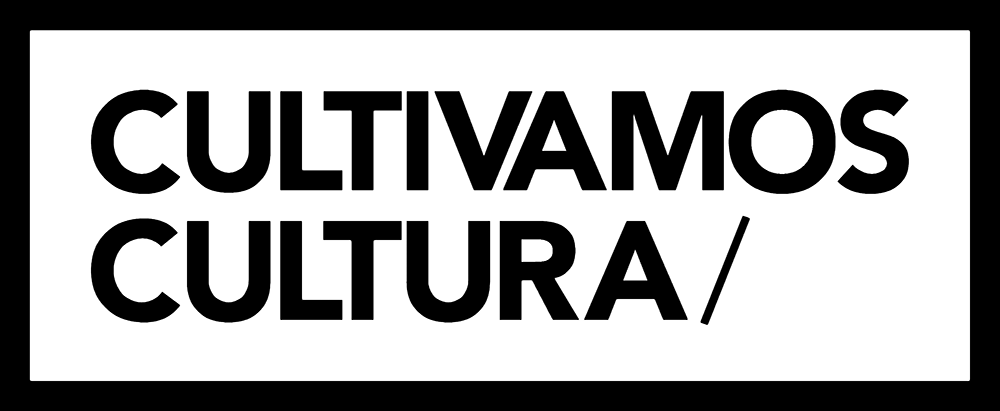
Funded by
Organisation team
Program coordinator and AIR guests: Deborah Hustić
Program coordination and AIR logistics: Paula Bučar, Monika Pocrnjić
Coordinator for equipment & tools: Goran Mahovlić, Igor Brkić, Damir Prizmić, Aleksandar Vojnić, Zvonimir Domazet, Fran Masnjak
Camp logistics on-site: Radiona peers
Camp facilities on the behalf of Kamp Velebit: Luka Žuženić
Coordinators for kitchen & food: Ana Horvat
Community Bar Coordination: Tomislav Zidar
Chef: Ana Stuparić & Mitja Greifoner (Association Avokado)
Design: Ivan Klisurić & Damir Prizmić
Website: Damir Prizmić